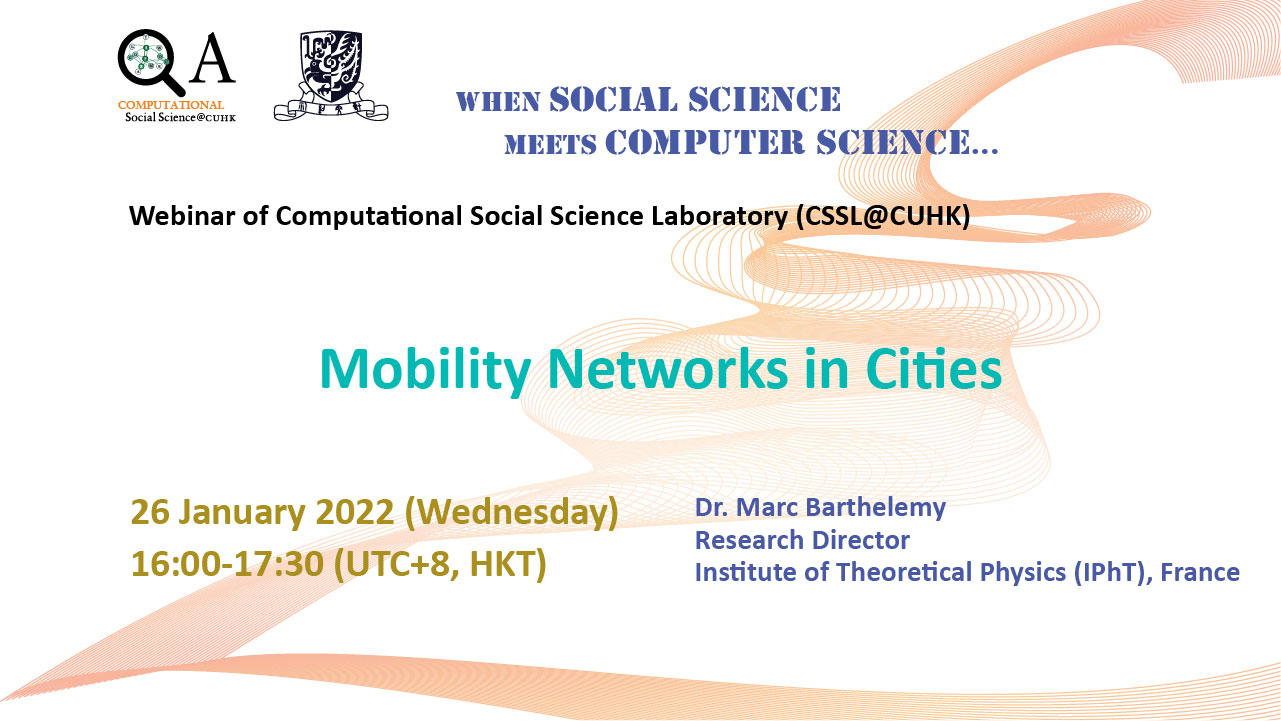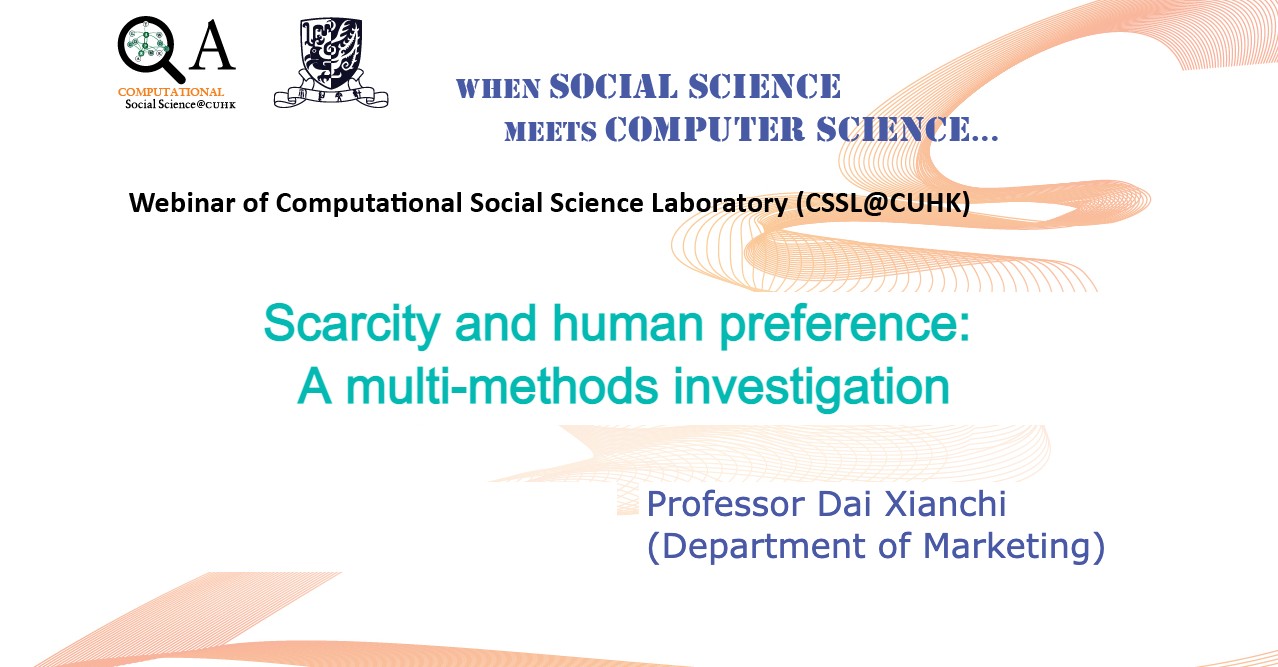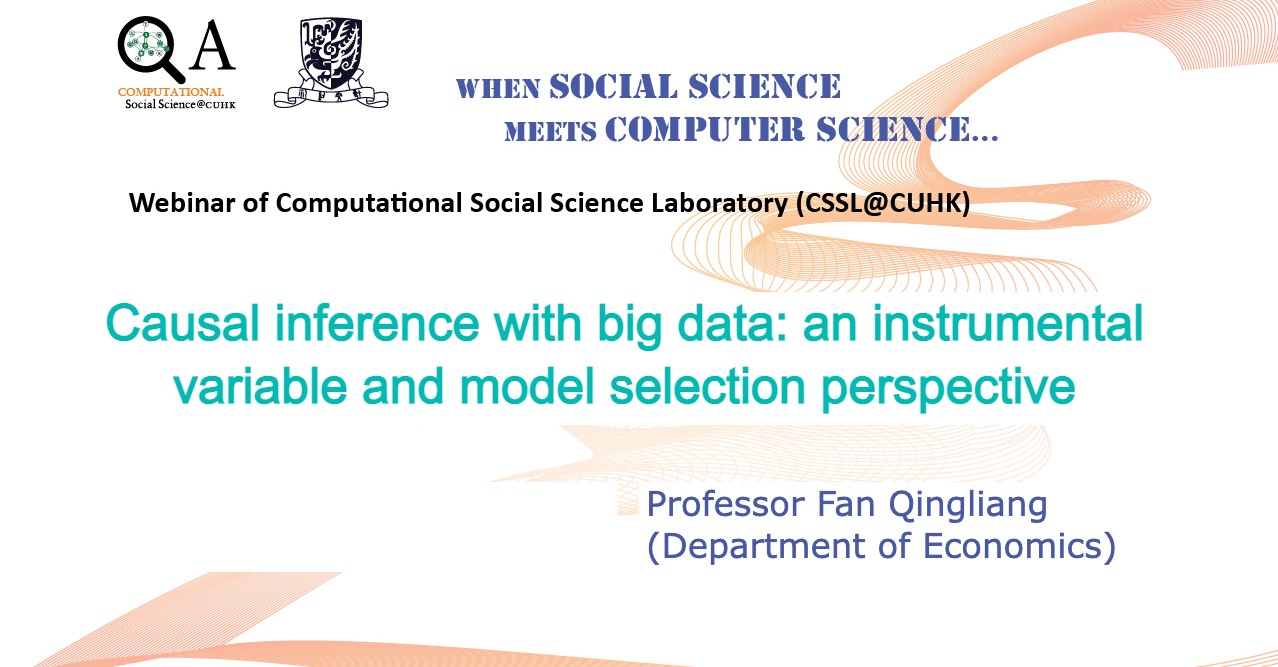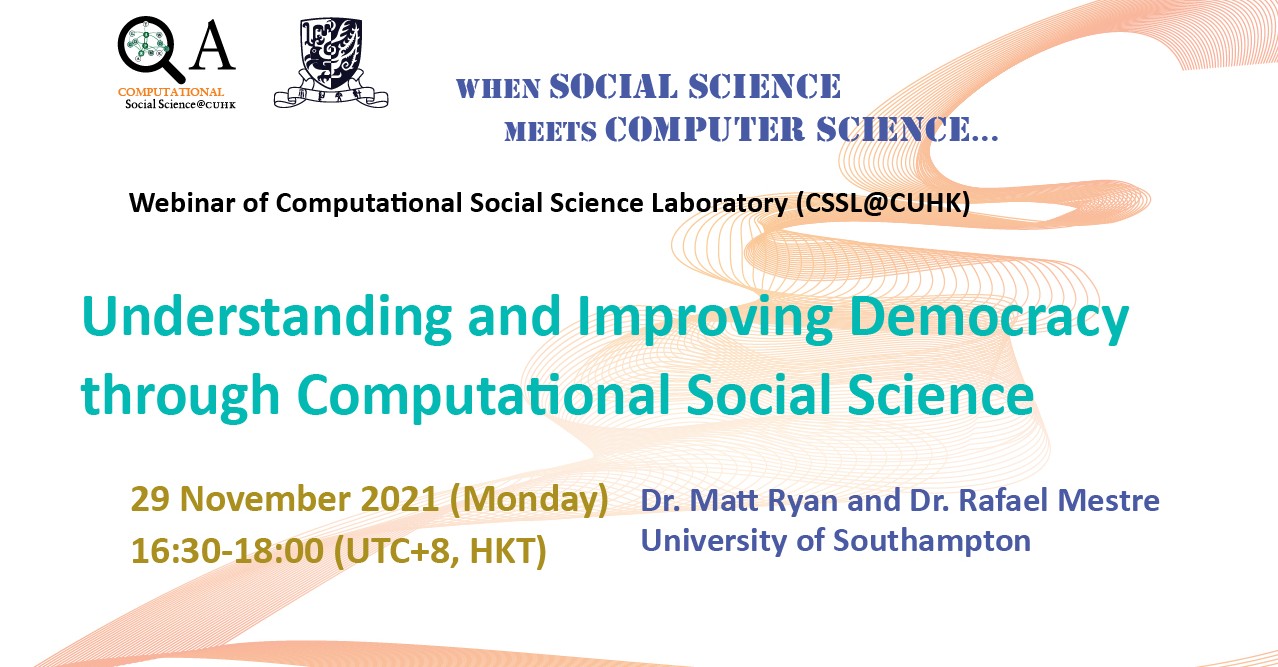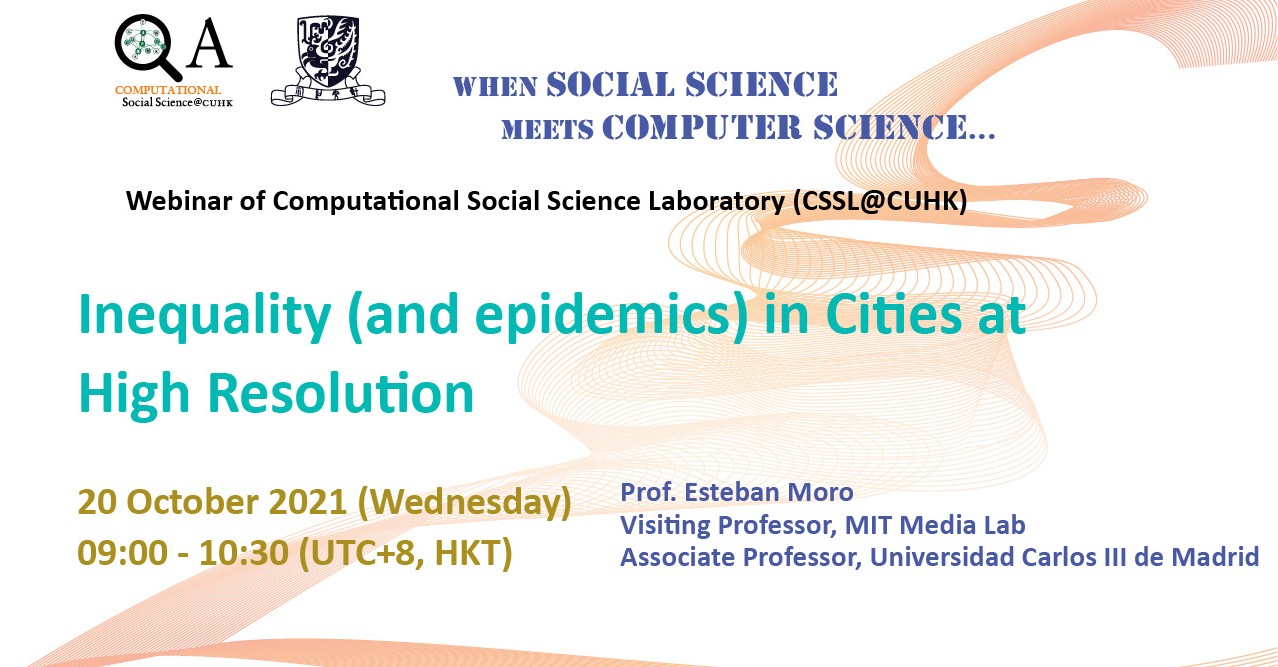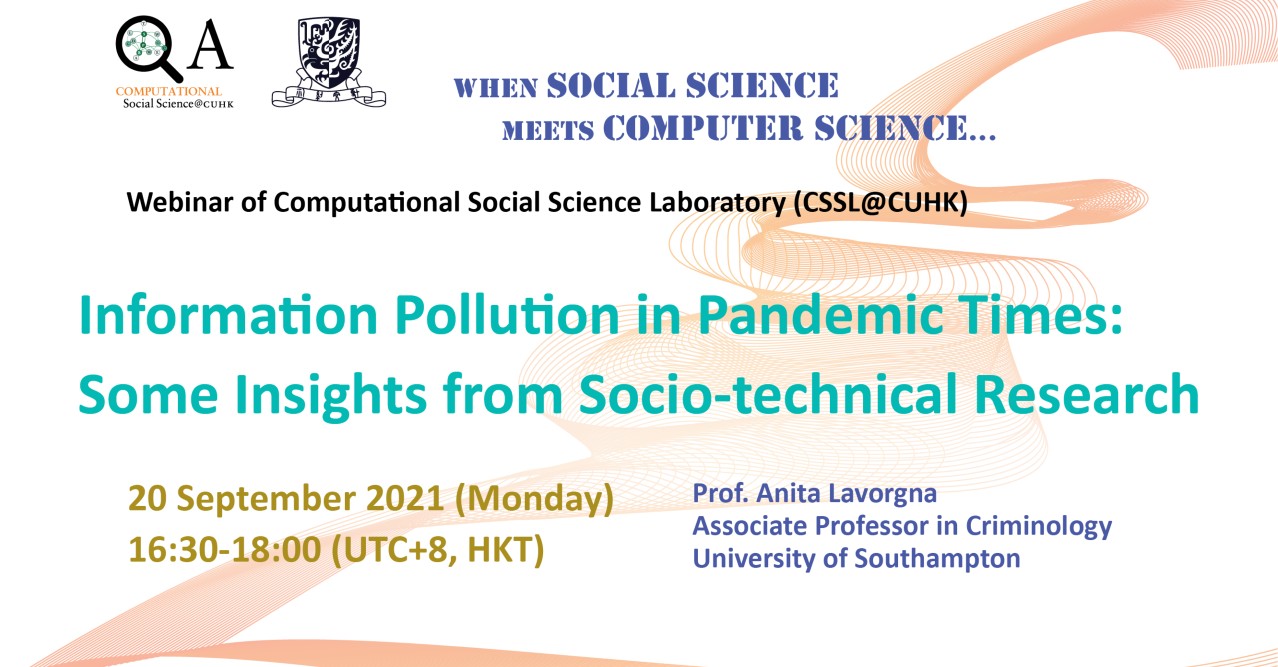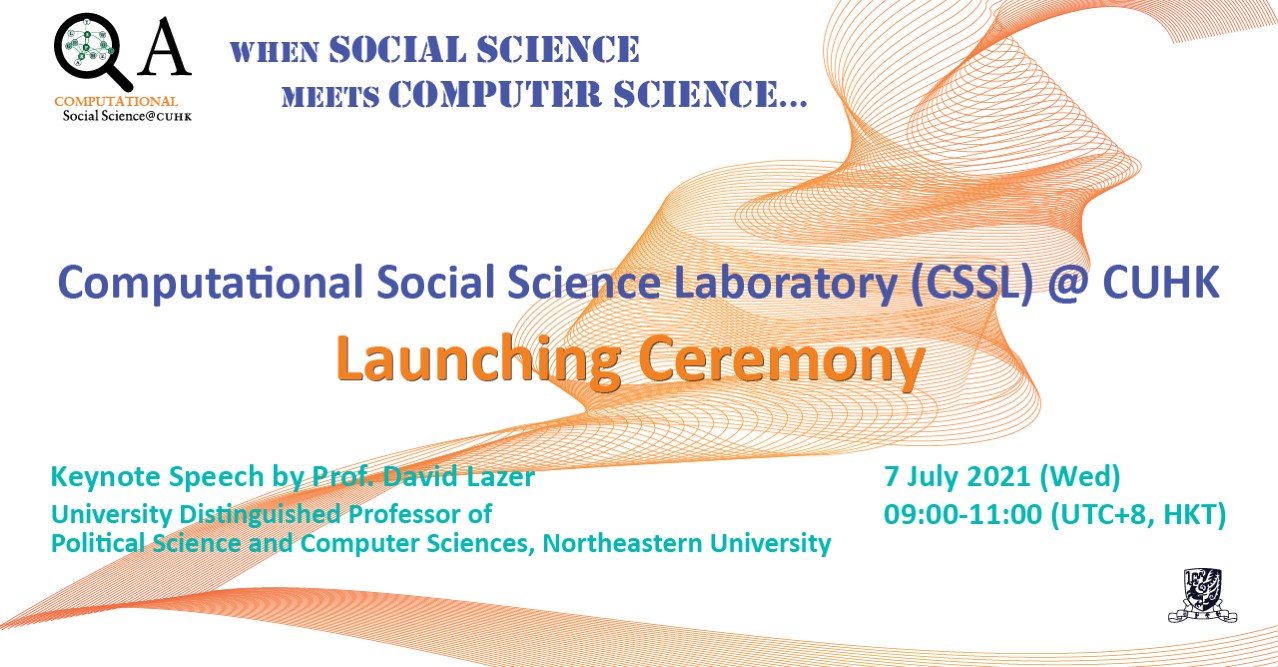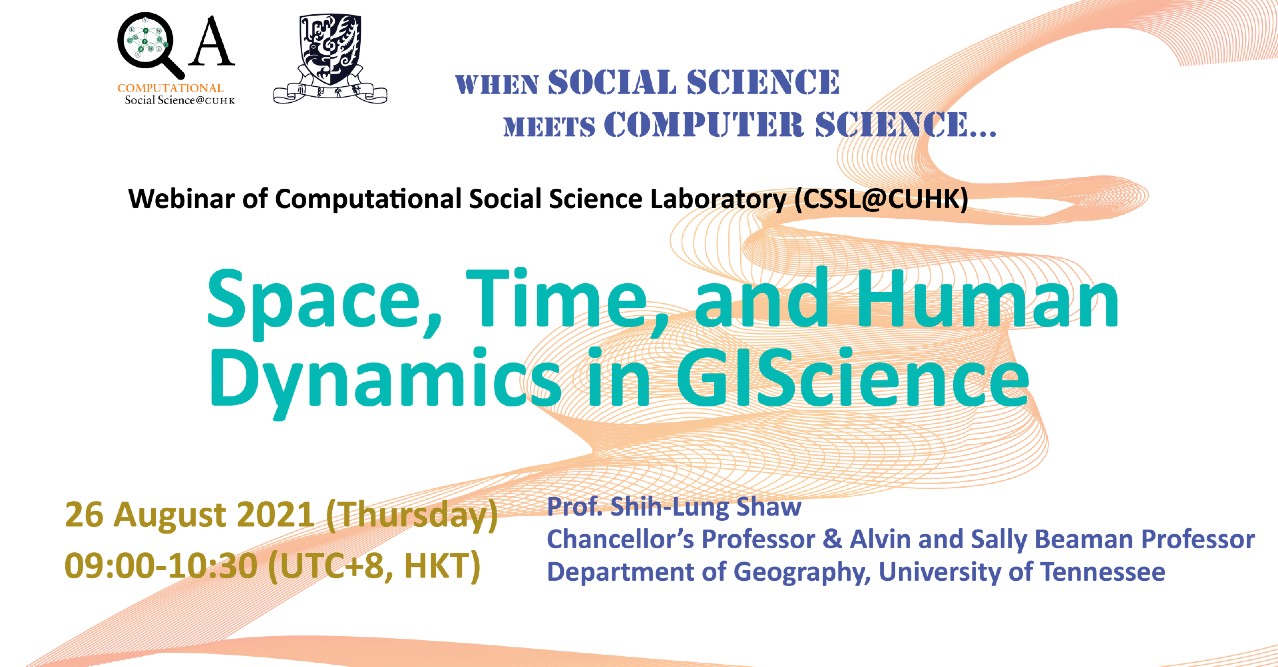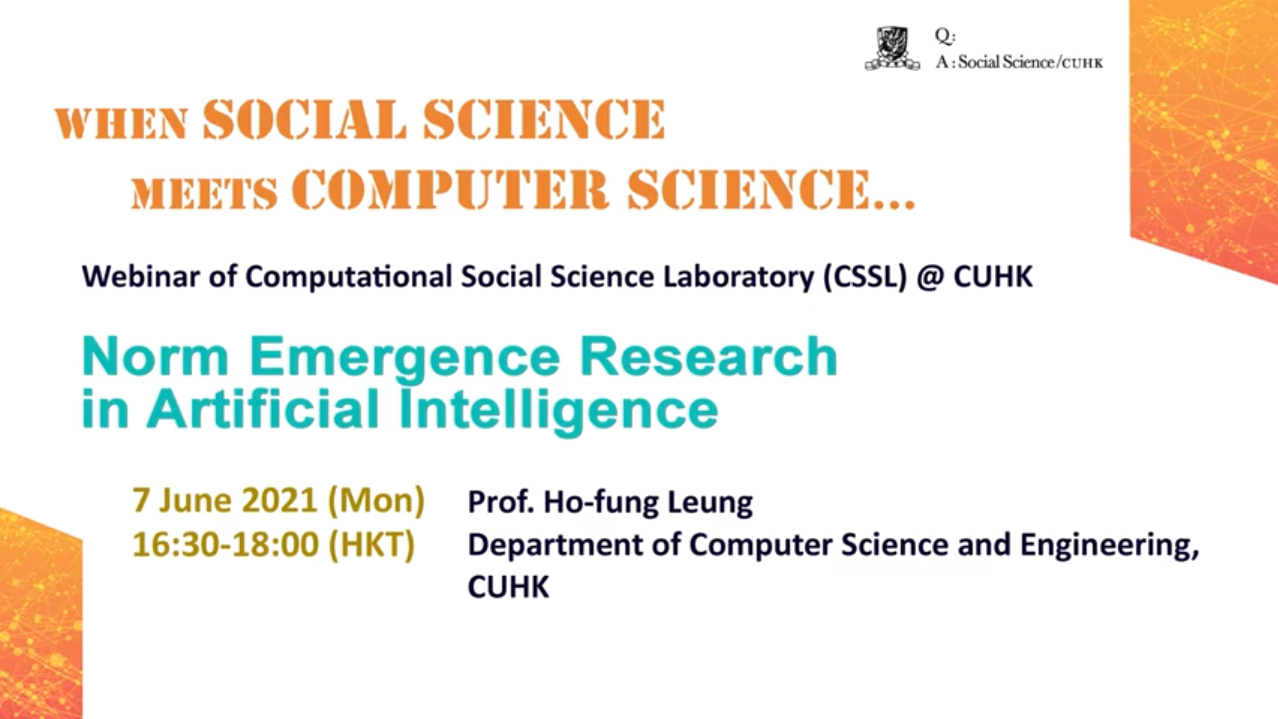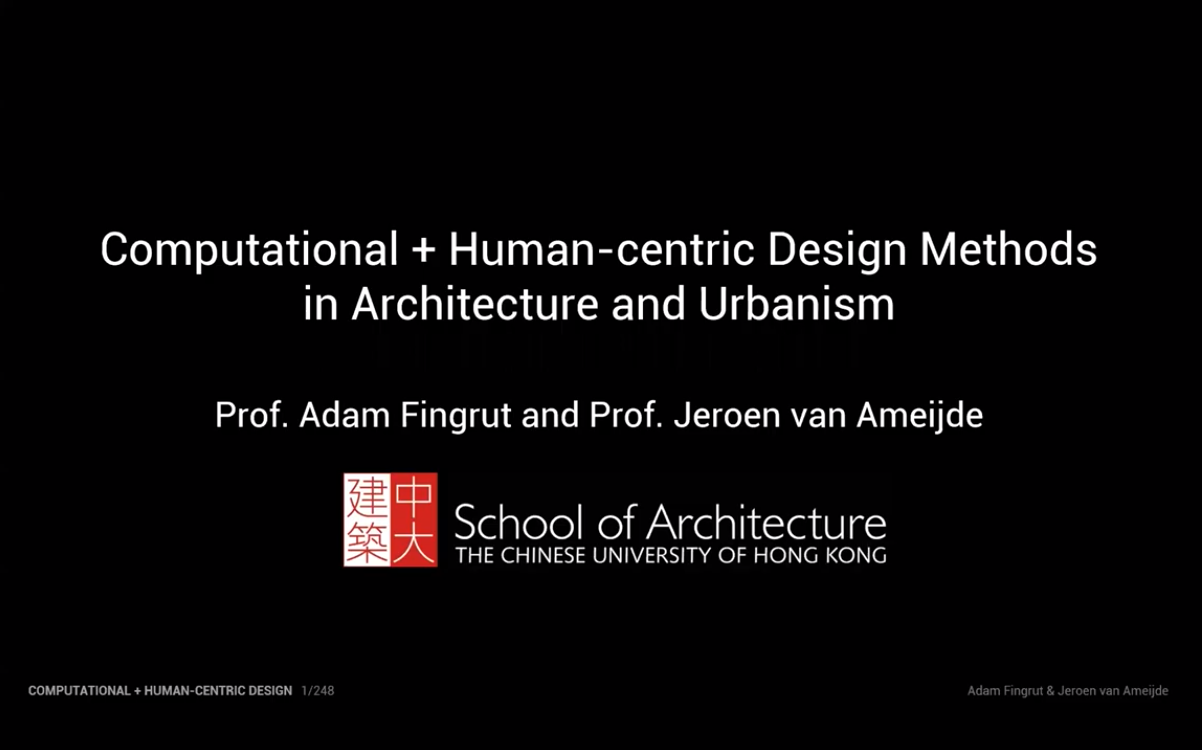Abstract: Mobility is fundamental in the development of countries and their cities, and it is therefore crucial to understand how it evolves in space and time. This talk focuses on mobility networks in cities such as street networks and subways, and also on spatial mobility patterns. In the first part, the main structural features of… Continue reading Mobility Networks in Cities
Author: admin
Scarcity and human preference: A multi-methods investigation
Abstract: In this talk, I study the effect of resource scarcity on people’s motivations to acquire resource and avoid waste. These motivations further interact to impact people prosocial tendencies and taste preferences. I use the combination of lab experiment, field experiment, survey and secondary data to test the proposed framework. Speaker: Professor Dai… Continue reading Scarcity and human preference: A multi-methods investigation
Causal inference with big data: an instrumental variable and model selection perspective
Abstract: In this short talk, I briefly introduce some recent work on causal inference using the instrumental variable (IV) method in high-dimensional models. Some of the common issues of the instrumental variable method, namely, weak instruments, invalid IV, control variable, and hypothesis testing, are covered selectively. Some potential empirical applications will be discussed. An R… Continue reading Causal inference with big data: an instrumental variable and model selection perspective
Understanding and Improving Democracy through Computational Social Science
Abstract: Despite continued popular support for democratic ideals, democratic regimes throughout the world are under threat. Fragmentation of the public sphere, and resource scarcity has hindered governors and publics in their efforts to communicate with one another. Advances in computing now provide opportunities to make sense of the abundance of information available, with the potential… Continue reading Understanding and Improving Democracy through Computational Social Science
Inequality (and epidemics) in Cities at High Resolution
Abstract: Inequality and segregation are hurting our societies and specially our cities, where the fact that we live apart from other racial, economical or social groups carries tremendous economical and societal consequences. Not only for the people living in poor neighborhoods, but for the region as a whole. Most studies still describe people’s segregation patterns… Continue reading Inequality (and epidemics) in Cities at High Resolution
Information pollution in pandemic times: some insights from socio-technical research
Abstract: The “coronavirus pandemic” struck the world in a really distinctive way, leading to an unstable and uncertain situation, affecting individuals, communities and many societies alike. In this context, and with cyberspace being increasingly used to support health-related decision making and to market health products, potentially harmful behaviours have been carried out by individuals propagating… Continue reading Information pollution in pandemic times: some insights from socio-technical research
CSSL Launching Ceremony
Guest Speaker: Professor David LazerUniversity Distinguished Professor of Political Science and Computer Sciences, Co-Director of NULab for Texts, Maps, and Networks, Northeastern University Link to webinar: https://www.youtube.com/watch?v=rCTsSAbv3yM Related Posts CSSL Launching Ceremony
Space, Time, and Human Dynamics in GIScience
Abstract: Conventional geographic information systems (GIS), which are conceptually constrained due to its confinement to the concepts of Newtonian absolute space and physical place, have failed to properly consider humans as dynamic and living entities. There is an urgent need of moving beyond the concept of absolute space to support research of human dynamics that… Continue reading Space, Time, and Human Dynamics in GIScience
Norm Emergence Research in Artificial Intelligence
Abstract: Norm Emergence in Multiagent Systems has been one of the active research areas in Artificial Intelligence. It investigates the emergence of norms as a result of multiagent learning in multiagent systems. In this talk, Professor Leung will introduce this research topic to researchers in other areas. He will start by introducing the key elements… Continue reading Norm Emergence Research in Artificial Intelligence
Computational + Human-centric Design Methods in Architecture and Urbanism
Abstract: As increasingly sophisticated and ubiquitous technologies permeate cities, buildings and everyday life, there is an urgent need to rethink how we shape future environments for individuals and communities. This webinar, by Adam Fingrut and Jeroen van Ameijde from the School of Architecture, showcases innovative methods for the analysis, design, construction and management of… Continue reading Computational + Human-centric Design Methods in Architecture and Urbanism

